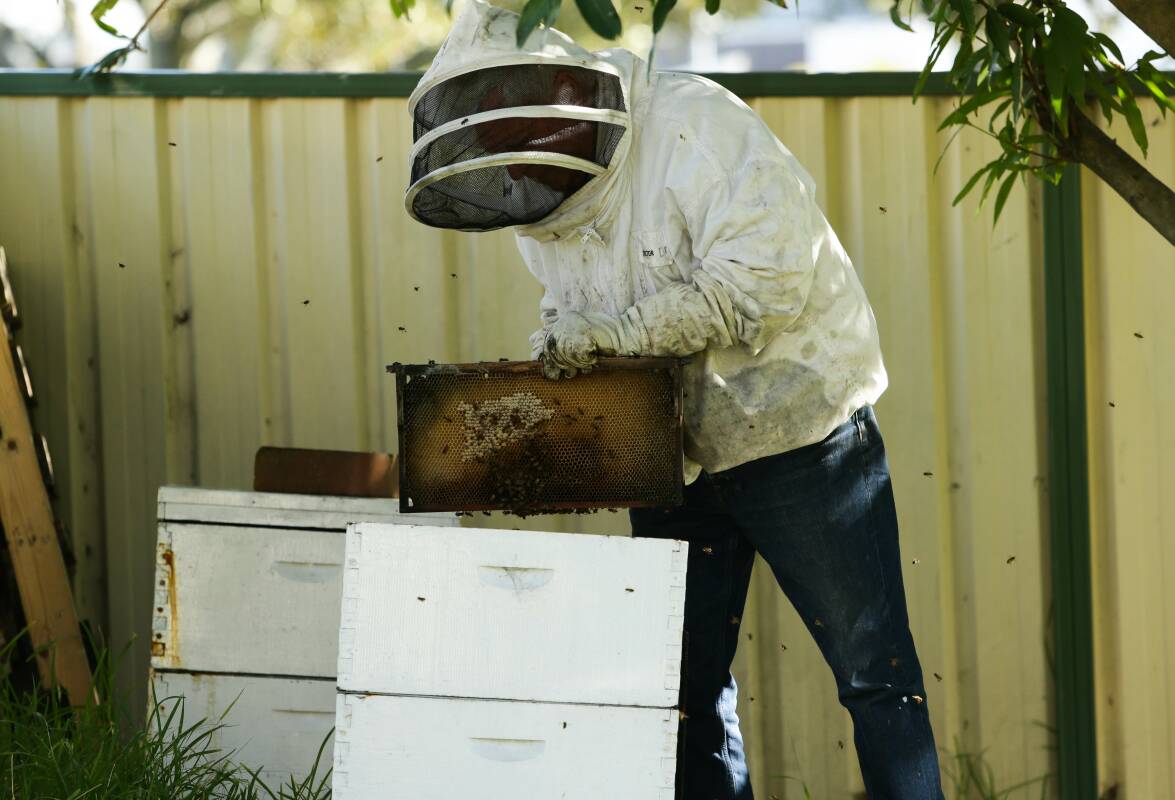
Newcastle beekeeper Neil Livingstone says the NSW government should halt plans for the widespread killing of bees to deal with the varroa mite outbreak.
"We need to learn to live with it," said Mr Livingstone, of Mayfield West.
"We can handle it without destroying all these beautiful bees."
Mr Livingstone said killing millions of bees won't solve the problem.
"You can't eliminate the mite now. If we kill every bee, we still haven't eradicated the feral bees that live in the trees and hollows. The problem will be here forever now," he said.
A spokesperson for the NSW Department of Primary Industries said the mite was "not established in Australia and we are one of the few countries left in the world where this has not happened".
"The devastating mite attacks European honeybees and is considered the greatest threat to Australia's honey and honeybee pollination industries," the spokesperson said.
The federal and state governments and pollination and honey bee industries had "agreed to a national response plan which aims to eradicate" the mite.
"All parties have unanimously agreed that it is both technically feasible and economically beneficial to pursue this.
"Eradication is still the primary goal and is in the best interest of the primary industry sectors that rely on pollination services."
The response plan was "continually monitored by the Consultative Committee on Emergency Plant Pests (CCEPP)".
"The CCEPP's role includes providing advice on when it is no longer technically feasible to eradicate varroa mite.
"Not being able to eradicate the mite will mean that beekeepers will have to live with and manage this pest."
Mr Livingstone held a volunteer role with NSW DPI, checking the six sentinel hives around the Port of Newcastle for more than a decade. He checked for the mite with formic acid strips.
He believes all beekeepers should get certified for this.
He has 32 hives around Newcastle - the epicentre of the outbreak. Only two of his hives tested positive. They were in Warabrook, about 1.5 kilometres from the epicentre.
The first mites were found at two sentinel hives in Mayfield. Mr Livingstone had four of his own hives next to these sentinel hives, but they were not positive for the mite. He said this shows that many hives would not be infested with the mite.
As such, he said plans to kill all bees in the eradication zones were an "over the top, knee-jerk reaction".
In the latest update on the mite's spread, NSW DPI detected nine new infected premises at Eagleton, Tomago, Millers Forest, Soldiers Point, Williamtown, Heatherbrae, Salt Ash, Tighes Hill and Leneghan, bringing the total to 53.
"The Local Control Centre at Maitland continues to focus on euthanising infected hives within the existing red zones across the region," a DPI statement said.
NSW Minister for Agriculture Dugald Saunders said "a rise in cases is expected in the eradication area" because of existing cases nearby.
"With more contact tracing comes more results and that is exactly what we are seeing here," Mr Saunders said.
Mr Saunders said a $550 compensation payment had been set "for each recreational hive destroyed to control the mite outbreak, or $200 for those who wish to keep their hive ware, which will cover the cost of the euthanised bees".
"A $200 reimbursement will also be given for each single nucleus hive that is euthanised, regardless of whether the hive ware is kept."
He said a new biosecurity emergency order had been issued to "allow beekeepers in the red eradication zones to work their hives to prevent swarming and remove honey supers in the 48 hours before their bees are euthanised".
"As the weather gets warmer in the lead up to spring, it is the peak time for bees to scout out a new home, once their hives become full of honey," Mr Saunders said.
"Swarming could exacerbate the outbreak and that's why the new order will allow people to place an empty honey super on the hive to deal with these concerns. Those in the red zone who wish to harvest their honey will be subject to strict conditions."
Mr Livingstone said beekeepers in Australia must learn to live with the varroa mite, as they do with American foulbrood, a fatal bacterial disease of honeybees.
"American foulbrood is equally as bad a problem in this country and it's been here for ages and we've had to learn to live with that."
He said acid strips could be put in hives to kill the mites.
"You leave the strips in for 48 hours, then take the strips away so the acid doesn't contaminate the honey."
He believed this process should be repeated at least every 14 days to keep ahead of the mite.
Mr Livingstone said the NSW government should run a certification program for managing the mite. Such a course could be run through institutions like Tocal College, he said.
"Let's get everybody certified so they know how to do it and we won't have to do this mass killing," he said.
"If it means going to Tocal College for lectures, we can do it. We can control the problem. We'll get through this as long as we do it intelligently."
He said DPI had also spoken about the need to destroy hives, along with "frames, boxes and everything" in eradication zones.
"It's ludicrous. We can keep the boxes by having them radiated and made sterile and ready to use again."
NSW DPI had stated that it may be necessary to "destroy internal hive equipment such as brood and honey frames".
However, it had since completed a risk assessment on "options to decontaminate external equipment such as hive boxes, pallets and straps as well as metal ware so they can be retained by beekeepers".
"The response plan has been updated so equipment will only be destroyed when a risk assessment deems it necessary."







